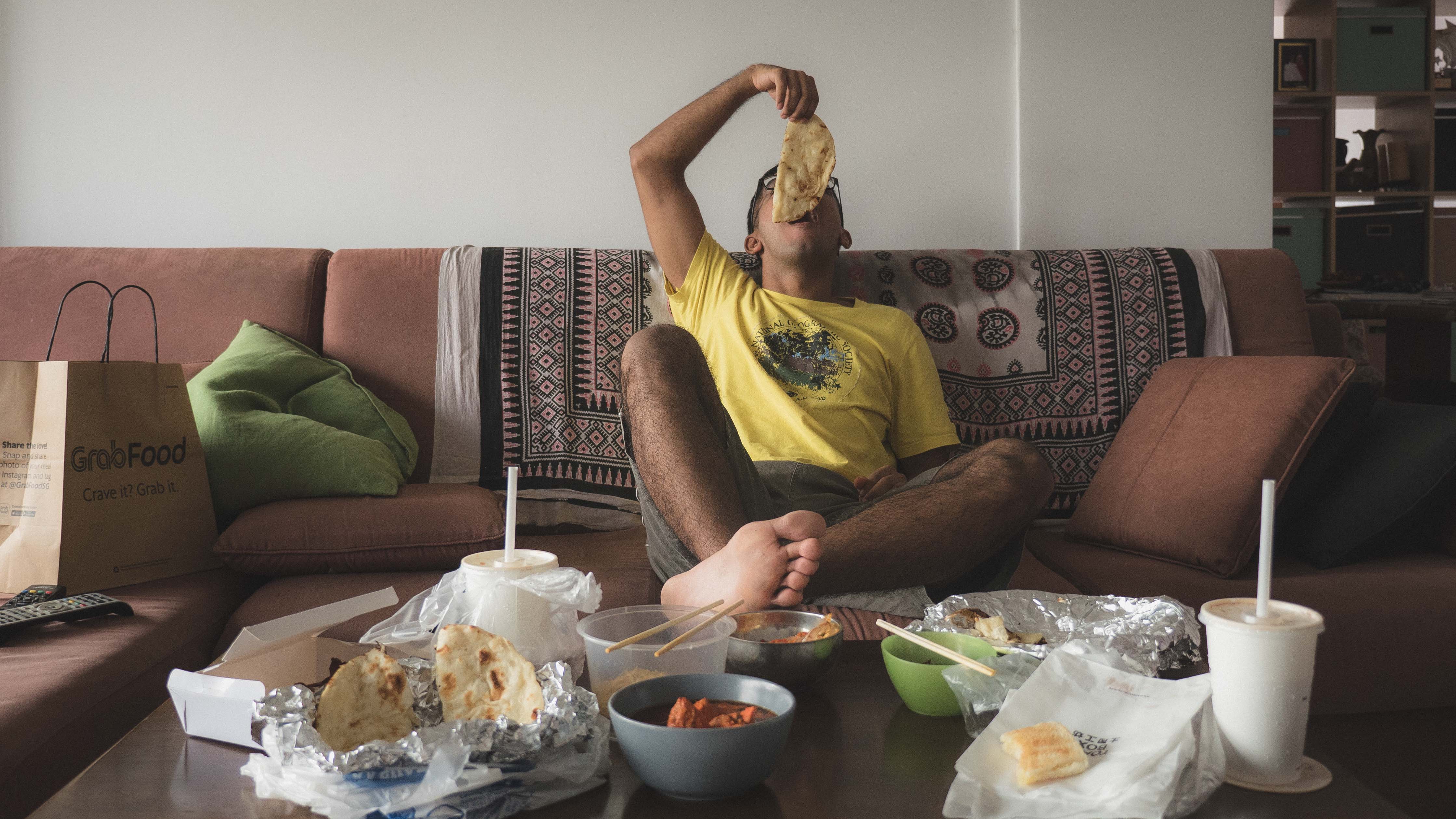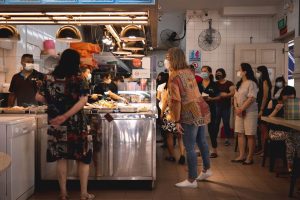I booked one day of leave. On a Wednesday. Yes, that’s right—instead of giving myself a nice long weekend, I wasted my leave on a too-short break. Did I have errands to run, a doctor’s appointment to catch, a relative flying in? No, it was just for me. However, instead of visiting a museum, or even heading to the gym, I did nothing with my day off but sit at home.
All. Day. Long.
Why on earth would I do something so incomprehensibly stupid? The answer: Grab challenged us to use their super app to spend an entire day at home; to become Singapore’s Laziest Man.
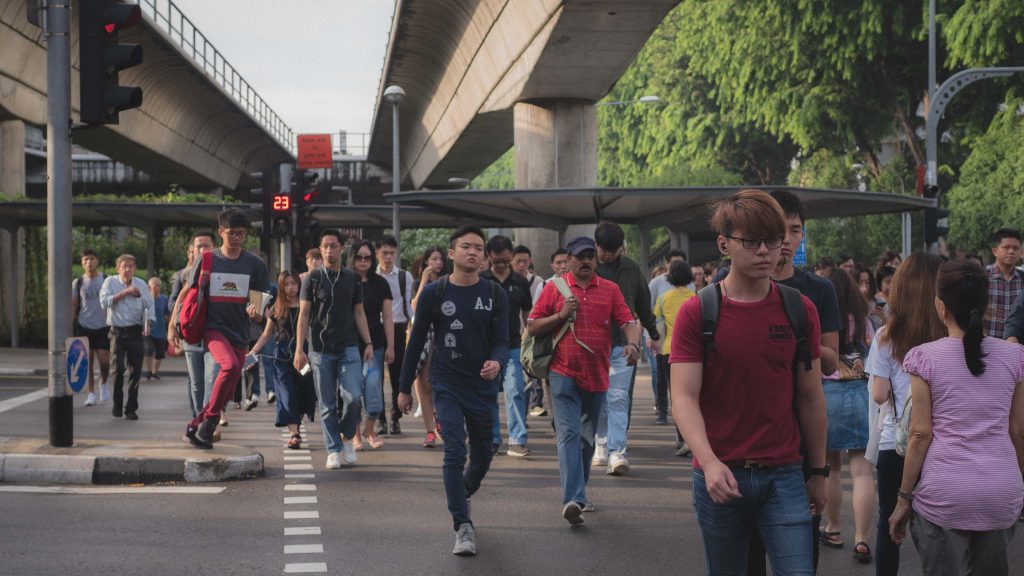
Every day, on the way to work, we scramble into buses, trains, and cars, contending with traffic thick as treacle and human-sardine crowds; a suffocating jam that makes one want to say: screw it, I’ll just Grab over. After all, hailing a taxi has always been an irritating attention-war; getting a ride from the convenience of your smartphone is a much simpler affair.
On social media these days, instead of the food-photography and holiday vistas of old, we see instead a barrage of job-related achievements, career updates, and all-nighter commemorations that document and celebrate the modern culture of work-hard-work-harder.
Or maybe this occupation-obsession is also a side effect of technology and social media. For years, our public affairs have increasingly infringed upon (or been invited into) our personal lives. This blurred the lines between work other aspects of life—friendship, exercise, hobbies, even holidays—which began to take on the vague shape and feel of a vast social competition.
Whatever happened to just kicking back and, you know, chilling?
Out of a strange urge to vindicate this nostalgia, I booked a single day of leave—midweek—to reconnect with my inner slacker. My goal: to spend the day firmly defending the laid-back lifestyle that we aspire to but never reach; to reach the depths of self-exploration that we project but never feel.
Slacking means de-linking, fully, from work.
But in the modern office space, work has become an abstraction from anything resembling life, vitality, or energy. A boring corporate activity, modern jobs involve less liveliness and more lividity (the result of sun-deprived skin-bleaching) than ever before.
And so, even while chillin’ at home, I unconsciously scrolled through work and office related chats on platforms like Whatsapp and Slack. It got to a point where, absolutely determined to shut the job out of my home, I resolved to uninstall all work-related tools from my gadgetry.
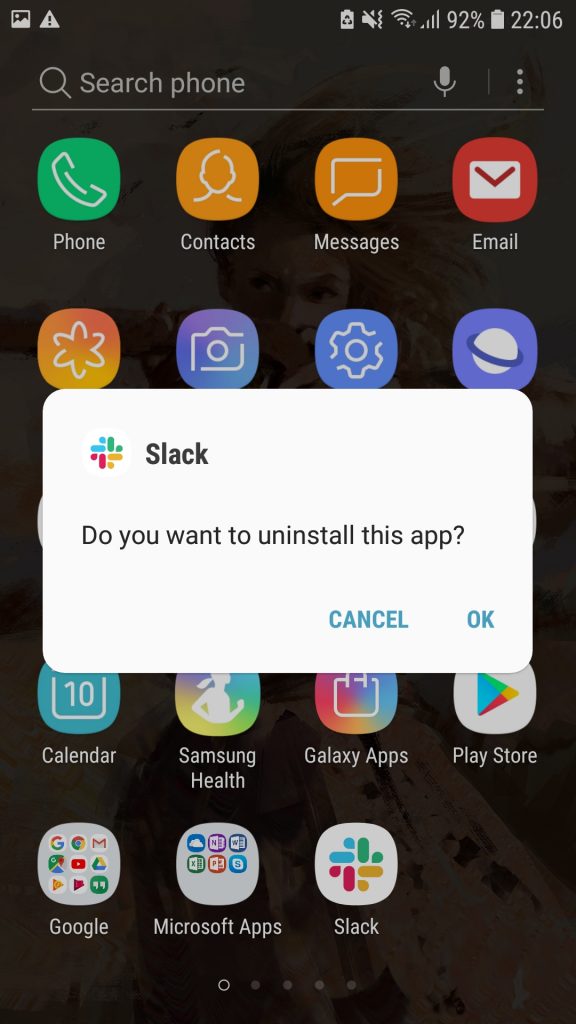
What you choose to eat attracts comments from co-workers—buy Western, “So rich ah!”, buy cai fan, “Eh you no money is it?”, buy curry, “Indian eat only Indian food hor?”
That day, though, I had the privilege of eating alone. I felt like murtabak, so a trip to Serangoon road was in order.
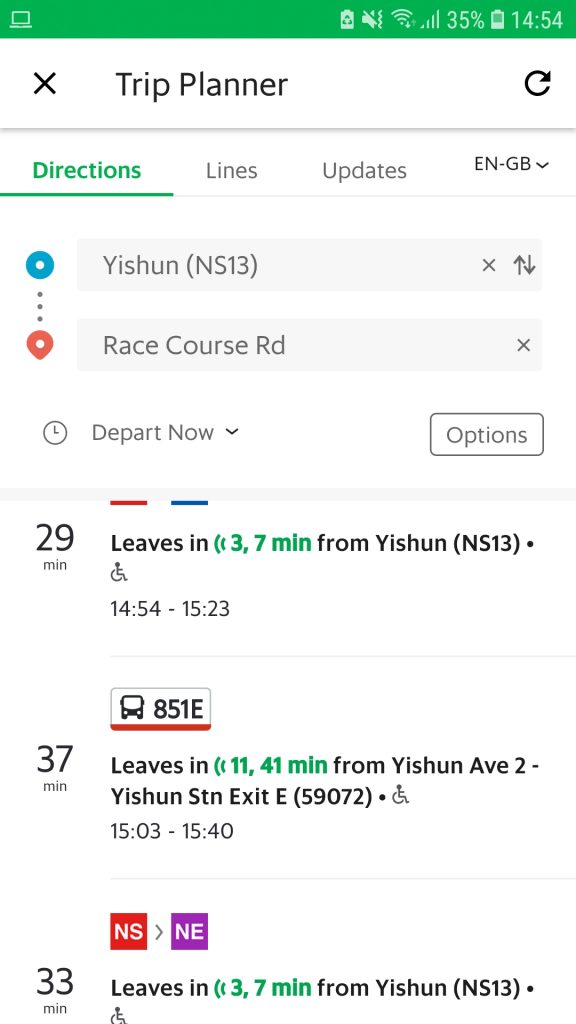
However, after checking the upcoming bus and train arrival times on the planner (it can do that!), I realised that the journey would take me more than half an hour. Furthermore, every good restaurant was at least a fifteen-minute walk from the nearest bus stop—a big no-no in the midday heat, especially on laze-day.
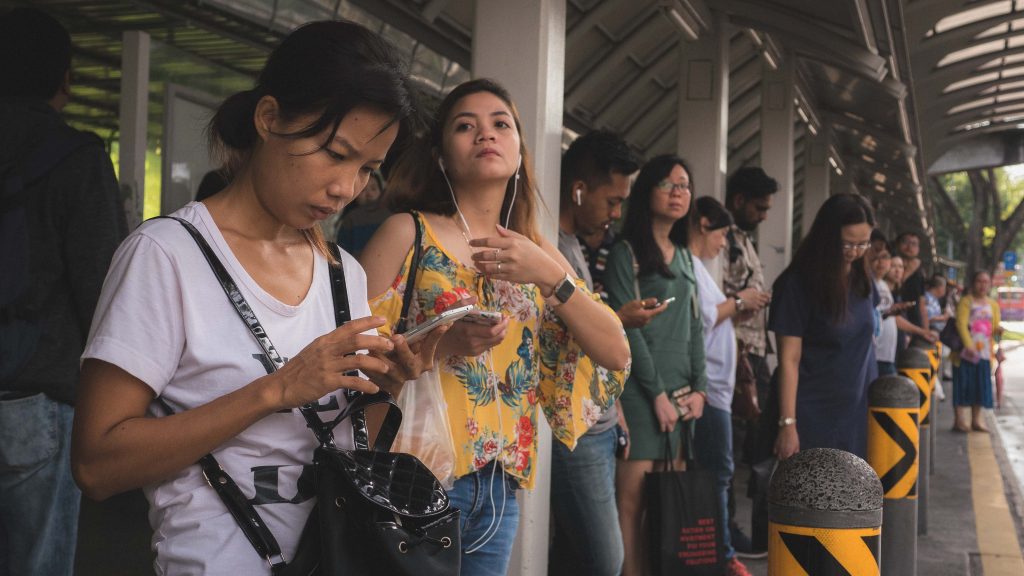
In fact, it felt so convenient that I just bought lunch and dinner with my Grab app as well, because what’s more chill than getting food delivered to your doorstep.
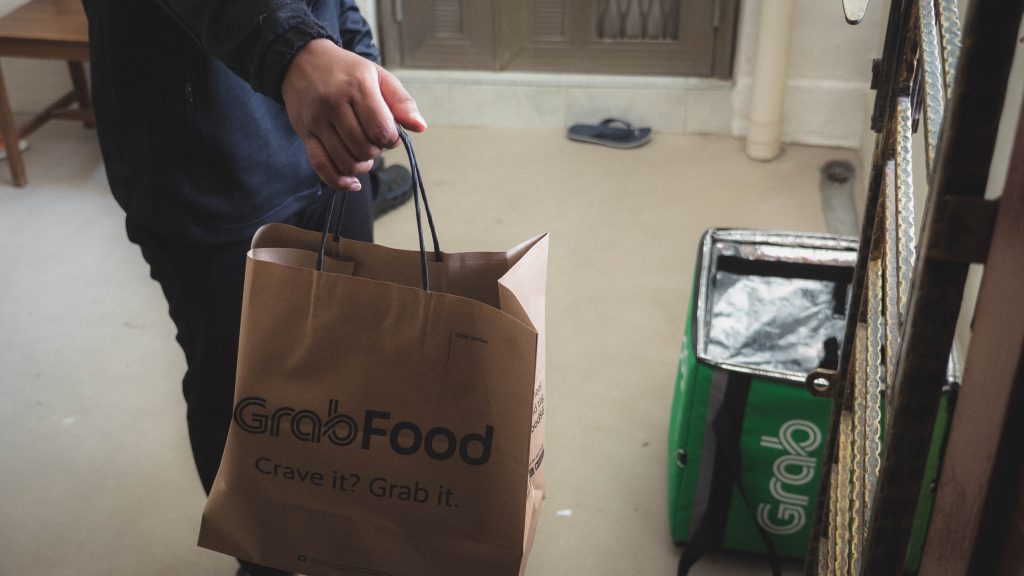
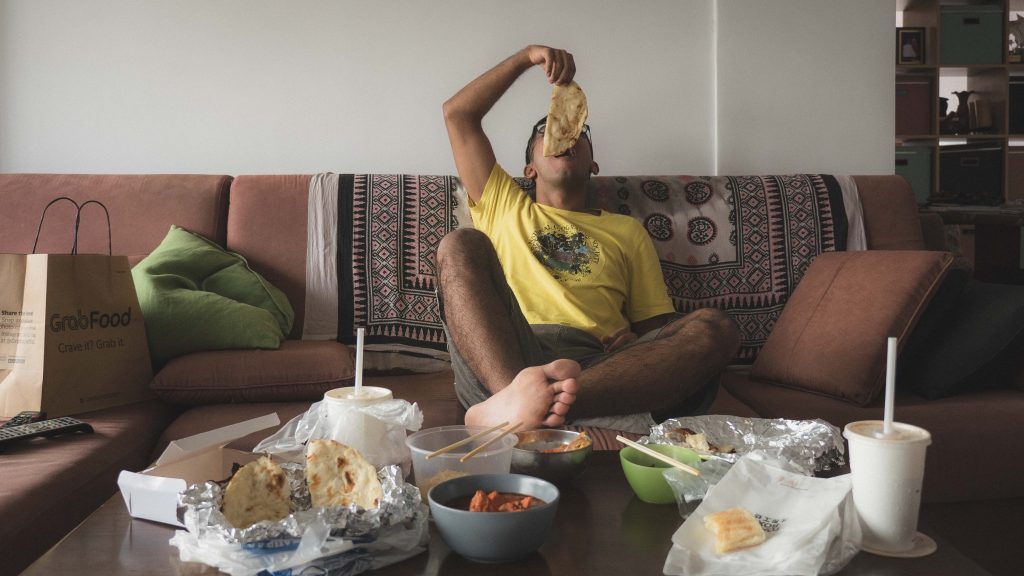
A nap was in order.
In general, rest and boredom are both things we’re afraid to embrace when we need it because office culture demonises it. In an eight- or nine-hour day, it can be difficult to maintain focus at all times—even with a quick lunch break in between. Productivity isn’t maximised by staring listlessly at your screen in full burnout mood, but the fear of judgement prevents us from simply snapping our laptops shut and going to sleep.
This fear pervades the home as well. Once we arrive back in our flats, now that we’re finally free from work, the residual effects of that anxiety begin to surface. We struggle to ‘catch up’ on news, ‘catch up’ with friends and family, or ‘catch up’ with our personal matters—as though it’s all one big race.
The truth is, when rest is necessary, it simply is; when we return from it, we are refreshed, energised, and ready to live again.
On this particular day, I awoke to discover a series of missed calls from my colleagues. As it turned out, a co-worker urgently needed some photographs for a project; photos were on an SD card that I had brought home the previous day.
Would I have to forgo my sacred vows of slack-dom, returning to the office to fulfil my corporate obligations?
Well, yes. But actually, no.

Using the app, I tracked the delivery rider’s location all the way to my office, and was notified that the delivery had been completed. Soon enough, my colleague dropped me a message, thanking me for sending the card over. Tech proved the saviour of a lazy soul.
While the rest of the day passed uneventfully, I couldn’t help feeling underwhelmed at the end of it. I had spent my time at home watching TV, listening to music, watering the plants, reading silently. Surely I had been missing out on something?
Or at least, that’s what my kiasu-konditioned brain was telling me.
The next day, when I rolled up to my desk, I was surprised to find that my laid-back attitude had crossed over to work as well. Approaching deadlines felt less like expiry dates and more like target boards; ongoing projects were no longer a terminal illness but, well, just another project.
This didn’t make me less efficient. In fact, without the usual burden of frayed nerves and constant panicking, I was able to complete tasks and get home quicker. This is fitting with scientific findings that more rest equals more productivity.
Perhaps more importantly, when I actually got home, I found it easier to disengage from work and just chill the hell out, without feeling like I was ‘losing’ anything. For the first time in what felt like a long while, I was able to just sit back and enjoy life.
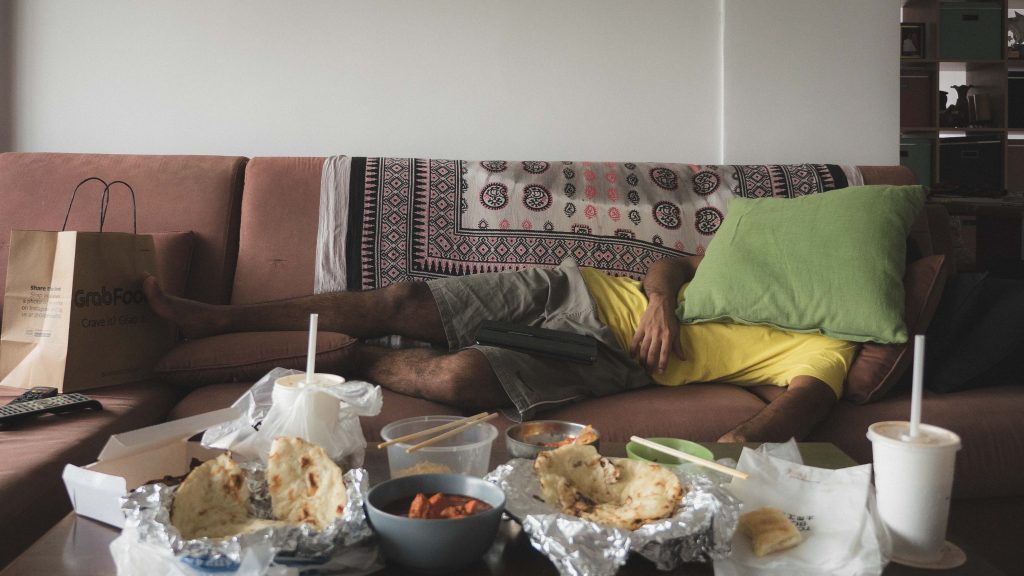
While modern society has conditioned us to treat rest as slacking, downtime as wasted time, laziness (at the right time!) is an important quality to possess. The ability to recharge is key to sustaining our mental wellbeing through the complete overload that defines modern existence.
Additionally, recharging at home has never been easier with the help of super apps like Grab, that allowed me to access all the services I required within the same application, and even pay for them with an in-house e-wallet; an immense convenience. After all, who wants to go to the trouble of switching between apps, e-wallets and external route planners? Technology like this greatly reduces the hassle involved in planning a lazy day.
And hey, when push comes to shove, lazing around is just good fun.
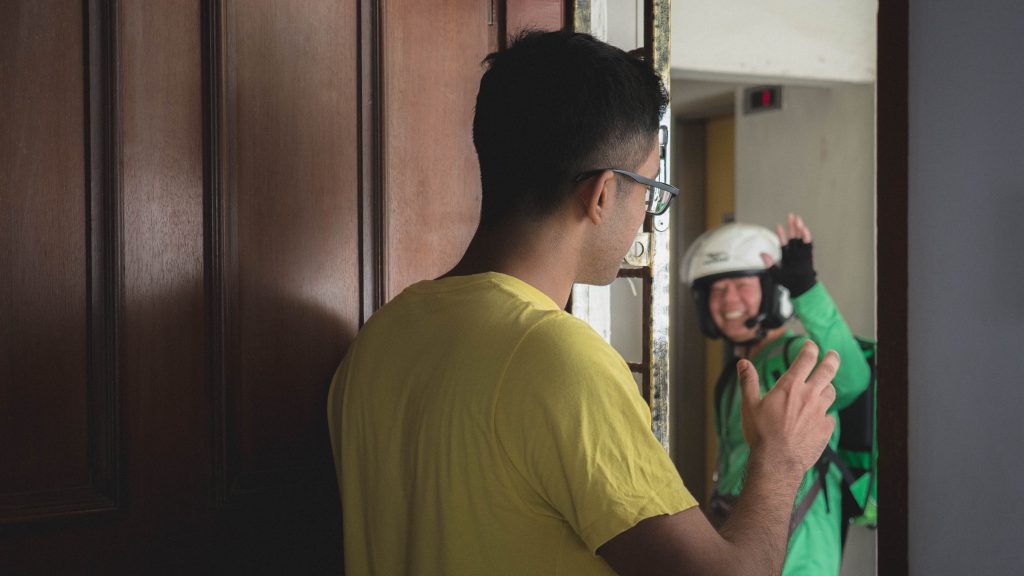
Some might say that technology has made us lazier, but the truth is much simpler: it’s simply there for us when we decide to be lazy. Open the Grab app to find out what else you can do to simplify life even further.
Would you spend your leave lazing at home? Write to community@ricemedia.co.

